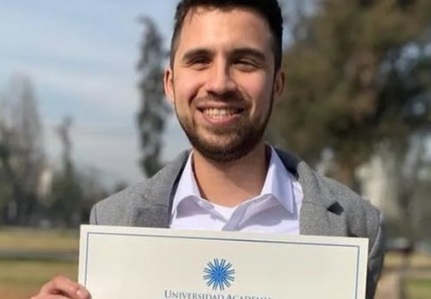The International Secretariat of Amnesty International publishes its own website, with country specific news and campaigns. Do check out the Chile page.
Good News from Chile
Amnesty International’s report “Eyes on Chile” and several campaigns since the repressive response to the 2019 protests – including the current Urgent Action – have called for an end to impunity for those who were in charge. Now an indictment has been filed against three current and former senior commanders of Carabineros de Chile, including the the current Director General of Carabineros, Ricardo Yáñez. Amnesty International considers this development a step towards justice for the grave and widespread human rights violations committed during the response to the protests. (from newsletter February 2024)
Amnesty’s 2023 report on Chile
In Amnesty’s 2023 report on Chile it highlighted that during 2023 legislation was introduced that increased legal protection for the police. Meanwhile impunity persisted for human rights violations committed during protests in 2019. Also refugees and migrants are still subject to discriminatory measures and faced obstacles to international protection. Violations of the rights of LGBTI people, Indigenous Peoples and women continue.
Significant Events from Newsletters 2024
July
June 18 marked the 50th anniversary of the creation of the National Intelligence Directorate (DINA). The DINA was created as a military organization outside the military chain of command; it was empowered to operate as a secret police force to monitor, arrest, imprison and eliminate anyone considered an opponent of the regime. The US National Security Archive has just published a curated collection of declassified CIA, DIA, FBI and State Department documents, along with key Chilean records, that reflect the history of DINA’s horrific human rights atrocities and terrorist crimes.
June
In January an indictment was served against three current and former senior commanders of Carabineros de Chile, relating to the protests in 2019. This included the current Director General of Carabineros, Ricardo Yáñez. The indictment was to be “formalized” (forcing Yáñez to resign) in May. This has now been postponed till October 1st. Amnesty International has sent a letter to the National Prosecutor calling for full accountability for the violations committed during the social outbreak and the zealous safeguarding of the independence of public prosecutors’ role and work.
Last month we said charges have been brought against a specific Carabineros officer, Claudio Crespo, who is accused of blinding Gustavo Gatica in November 2019. Regrettably, a trial date for Gustavo Gatica’s trial preparatory hearing, initially scheduled for 26 April, was also postponed until 9 August. Gustavo’s legal counsel are appealing this decision. We have not been asked to take further action at this stage.
May

Graduation picture of Gustavo Gatica
Gustavo Gatica is also featured in the campaign to regulate policing equipment. Gustavo was blinded whilst taking part in the peaceful protests of 2019. Charges have been brought against a specific Carabineros officer, Claudio Crespo (previously referred to by his identification number “G3”) and a trial date is expected imminently. Amnesty are currently focusing efforts on command responsibility on a separate criminal investigation, but one which can also provide justice to Gustavo and hundreds of other victims.
Meanwhile Claudio Crespo has just launched a book – G3: Honor and Betrayal: Revelations of a police officer betrayed by the State. Dismissed from the Carabineros, no longer on remand in prison, he is high profile on television and platforms such as X. He has founded and presides over a political party, Alternative for Chile. Crespo has previously been accused of using excessive force, including shooting indiscriminately and blinding someone during protests in 2018. He admits to shooting his shotgun “at least 170 times” on the day Gustavo was blinded.
March
The campaign for the protection of the Women Water Defenders in Chile has now been closed by Amnesty. This is partly due to changes in the dynamics of their organisation and the risk situation of women has improved; they believe that they no longer face immediate personal threats. The three women defenders will continue their activism to defend water on different fronts and with other civil society organizations. Amnesty Chile will continue to be in contact with them individually and provide necessary support when they require it.
Water, like other essential natural resource, is managed by private entities through usage-rights purchases. This dates back to Pinochet’s 1980 constitution. Chile’s economy is built on water-intensive, extractive industries. The country is recovering from last month’s devastating fires, that left at least 133 people dead, after a heat wave (and winds) that affected Chile, Argentina and many other parts of South America; temperatures touched 48°C. The heat exacerbates the drought; over half the population live with severe water scarcity. Demand for water significantly exceeds its availability.
January
56% of Chilean voters rejected a new draft constitution to replace the country’s dictatorship-era charter. President Gabriel Boric has said it would be his last attempt to reform the constitution. Voters rejected a progressive version in 2022, and this latest draft was drawn up by a more right-wing constitution committee. “Unexpectedly, they managed to write an even worse constitution” said Gustavo Gatica prior to voting. Gustavo, blinded during the 2019 protests was featured in Amnesty’s report “Eyes on Chile”, and is highlighted in the current Urgent Action calling to end police impunity.